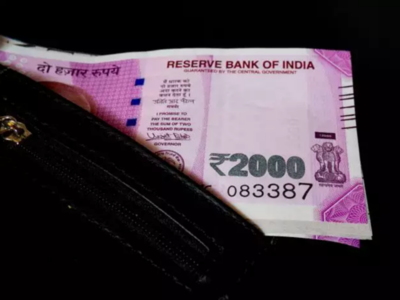
MUMBAI: The Central Board of Direct Taxes (CBDT), in a notification issued on Monday, has clarified that employers can rely on a declaration from employees and deduct tax at source (TDS) against salary income, based on the concessional tax rates.
It may be recalled that the Finance Act, 2020, had given an option to individuals to opt for concessional tax rates, on taxable income up to Rs 15 lakh.
However, for this, the taxpayer had to forgo a host of exemptions and deductions – such as house rent allowance, leave travel allowance, standard deduction, deductions for various investments, medical insurance premium etc.
Payroll accountants and tax professionals have welcomed this timely notification, as April is the first month in which the new provisions come into effect. TDS would soon be required to be deducted against the April payouts.
A challenge was foreseen by employers, owing to the wordings of the section 2(9) of the Finance Act. A literal interpretation meant that employers would have to deduct tax at source under section 192, by applying the normal rates and not the concessional tax rates.
This would have resulted in disproportionate TDS and the employee would have had to claim a refund, after filing his tax returns.
CBDT goes on to clarify that if the intimation is not received from the employee of having opted for the new personal tax regime, then the employer shall deduct tax at source, without considering the provisions of Section 115BAC (concessional rates) of the Income-tax (I-T) Act.
Once the intimation has been made by the employee for a particular financial year, for the purpose of TDS it cannot be modified. However, at the time of filing the I-T return, the employee can chose to change his option.
It may be recalled that the Finance Act, 2020, had given an option to individuals to opt for concessional tax rates, on taxable income up to Rs 15 lakh.
However, for this, the taxpayer had to forgo a host of exemptions and deductions – such as house rent allowance, leave travel allowance, standard deduction, deductions for various investments, medical insurance premium etc.
Payroll accountants and tax professionals have welcomed this timely notification, as April is the first month in which the new provisions come into effect. TDS would soon be required to be deducted against the April payouts.
A challenge was foreseen by employers, owing to the wordings of the section 2(9) of the Finance Act. A literal interpretation meant that employers would have to deduct tax at source under section 192, by applying the normal rates and not the concessional tax rates.
This would have resulted in disproportionate TDS and the employee would have had to claim a refund, after filing his tax returns.
CBDT goes on to clarify that if the intimation is not received from the employee of having opted for the new personal tax regime, then the employer shall deduct tax at source, without considering the provisions of Section 115BAC (concessional rates) of the Income-tax (I-T) Act.
Once the intimation has been made by the employee for a particular financial year, for the purpose of TDS it cannot be modified. However, at the time of filing the I-T return, the employee can chose to change his option.
Download
The Times of India News App for Latest Business News
Subscribe
Start Your Daily Mornings with Times of India Newspaper! Order Now
more from times of india business
Quick Links
ELSS Mutual Funds BenefitsIncome Tax Refund statusWhat is AssochamITR Filing Last DateHome Loan EMI TipsHome Loan Repayment TipsPradhan Mantri Awas YojanaTop UP Loan FeaturesIncrease Home Loan EligibilityHome Loan on PFTax Saving Fixed DepositLink Aadhaar with ITRAtal Pension YojanaNita AmbaniIndian EconomyRBIAadhaar CardSBIReliance CommunicationsMukesh AmbaniIndian Bank Ifsc codeIDBI Ifsc codeIndusind ifsc codeYes Bank Ifsc CodeVijay Bank Ifsc codeSyndicate bank Ifsc CodePNB Ifsc codeOBC Ifsc codeKarur vysya bank ifscIOB Ifsc codeICICI Ifsc codeHDFC Bank ifsc codeCanara Bank Ifsc codeBank of baroda ifscBank of America IFSC CodeBOM IFSC CodeAndhra Bank IFSC CodeAxis Bank Ifsc CodeSBI IFSC CodeGST
Get the app








